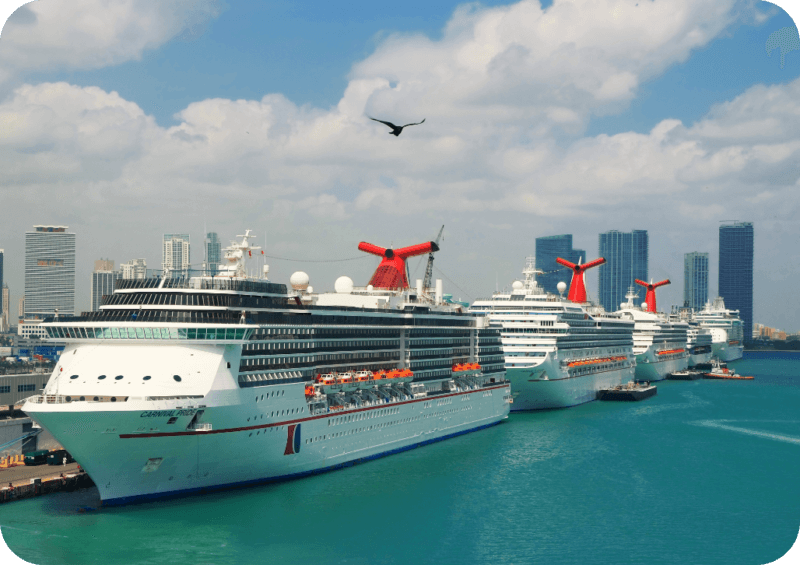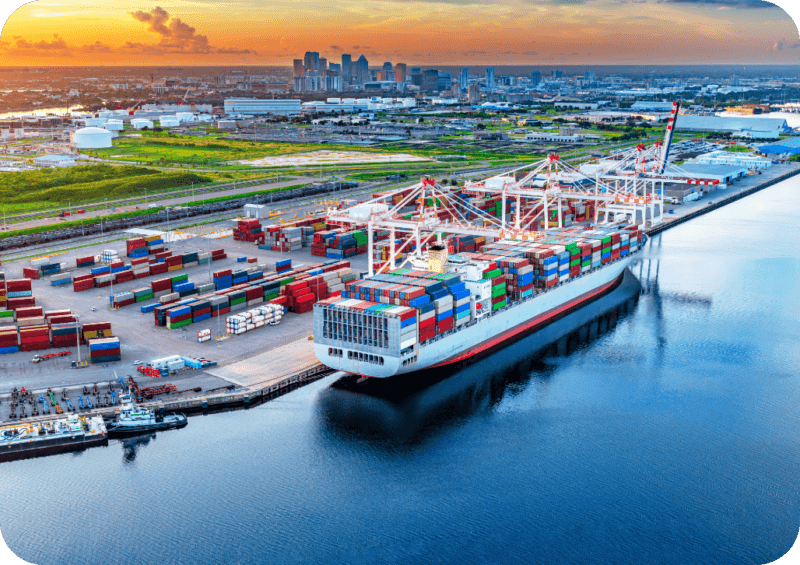Natural Gas Propels Florida Seaports Forward
See how natural gas is improving operational efficiency for ports.
From cargo shipments to cruise travel, Florida’s 16 public ports keep the state moving. In a one-year period, Florida seaports handled 114.2 million tons of cargo and transported more than 19 million total cruise passengers. High volume requires energy—and a lot of it. That’s why port operators are turning to natural gas for its economic and environmental benefits. See how natural gas improves operations across the maritime industry in Florida.
Reduced Environmental Emissions
Port operations and maritime vessels must abide by International Maritime Organization (IMO) standards, including air quality regulations. Florida seaports are leading the industry by using liquified natural gas (LNG) for cargo and cruise vessels, which offers significant environmental and economic benefits. By choosing LNG over traditional fuel, vessels can greatly reduce their carbon dioxide and greenhouse gas emissions. Leading the way in North America, Carnival Cruise Line’s “Mardi Gras” was the first LNG-powered cruise ship of its kind. Unlike the black smoke diesel engines generate when started, natural gas doesn’t produce visible emissions after combustion. Roughly 26 new LNG-powered cruise ships are expected to be built and delivered in the coming years. As more vessels shift toward LNG, Florida cruise ports will also invest in more infrastructure to support them.

Increased Cost Effectiveness
Did you know the U.S. is the leading producer of natural gas in the world? America’s natural gas supply is abundant, which makes it more cost effective on an energy-equivalent basis than fuel oil. For ports that utilize LNG for cargo and cruise vessels or compressed natural gas (CNG) and LNG for fleet and cargo handling operations, there’s a big opportunity for cost savings. The abundance of natural gas domestically also provides stability and peace of mind. With a 90+ year supply of conventional natural gas, the fuel source will be there when you need it—providing a plan not just for today, but for the future, too.

Economic Impact
From port operations managers to cargo coordinators, Florida’s ports have supported more than 900,000 jobs across the state. Combined, the ports have an economic value of $117.6 billion. Florida seaports have generated $17.1 billion, which is made up of $8.1 billion in direct income and $9 billion in direct revenue. This helps strengthen Florida’s local economy. Cost savings initiatives, like exploring natural gas as an alternative fuel solution, may also help to reduce operational costs and boost profit margins.


